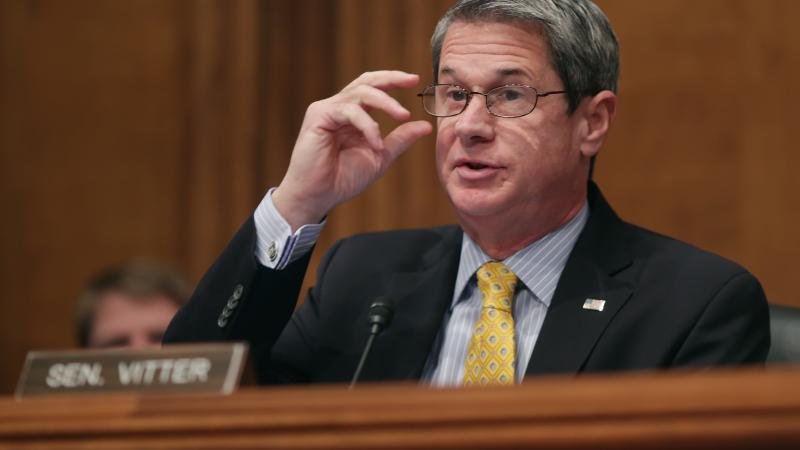Expert in Kari Lake election suit: 'No doubt' she would have won without Maricopa Election Day chaos
The trial is set to conclude Thursday.
Election modeling expert Richard Baris said Thursday in the Kari Lake election lawsuit that his projections showed as many as 40,000 voters were disenfranchised over Election Day chaos in Arizona's Maricopa County, causing him to "have no doubt" that she would've won the gubernatorial election had there been no problems at polling centers.
Baris is the final witness for Lake in the scheduled two-day trial for her election lawsuit.
Baris testified that 25,000 to 40,000 voters were disenfranchised in the county as a result of roughly one in five vote centers suffering problems with ballot tabulator machines in the first hours of Election Day
"We've got about 20% of the locations out there where there's an issue with the tabulator," Maricopa Board of Supervisors Chairman Bill Gates, a Republican, said on election night. Describing the problem, he said that after some voters filled out their ballot, the machine wouldn't accept it. Since then, the county has admitted that 70 out of the 223 vote centers experienced issues on Election Day.
Election officials, however, assured voters their ballots would still be counted as a result of redundancy protocols.
The vote margin between Lake and Hobbs is 17,117 votes.
Baris said the net gain Lake would've received in the votes that weren't cast on Election Day would have made her the winner of the Arizona gubernatorial election.
Baris testified that his firm, Big Data Poll, typically finds the difference in the exit-poll participation rates between early voters and Election Day voters is about 5-8%. In Maricopa County last month, however, the difference was about 20%, further suggesting that would-be voters there stayed home upon learning about voting machine problems.
That has "never happened to me before," he said.
Following Baris' testimony, Lake's lawyers rested their case, and legal counsel for the defendants called their first witness, Kenneth Mayer, a political science professor at the University of Wisconsin-Madison.
Mayer, who said he has been involved in polling for the last 30 years, testified that there was no data to support the idea that ballot tabulator issues on Election Day caused voters to be disenfranchised and affected the outcome of the election.
The professor discounted Baris' polling data, noting issues with self-reporting rather than using systematic methods, and said that Baris' conclusions about his own data weren't supported by the data.
During direct examination by the defendants' legal counsel, he addressed the declarations regarding long wait times at vote centers, saying that the estimates widely varied and people generally do not correctly guess wait times due to the frustration of waiting in line.
Under cross-examination by Lake's legal counsel, Mayer said that he didn't verify the accuracy of the wait times provided by Maricopa County.
Lake, the 2022 Arizona GOP gubernatorial nominee, is suing her Democratic opponent, Governor-elect and Secretary of State Katie Hobbs; Maricopa County Recorder Stephen Richer; the county Board of Supervisors; and county Director of Elections Scott Jarrett.
Lake's case alleges the "number of illegal votes cast in Arizona's general election ... far exceeds the 17,117 vote margin" between her and Hobbs.
The trial began Wednesday with the testimony of Richer, Jarrett, cybersecurity expert Clay Parikh, county temporary technician Bradley Benticort, and Republican National Committee attorney Mark Sonnenklar.
Following Baris' testimony, the defendants' legal team will call four witnesses to the stand, then each side will give closing arguments.















